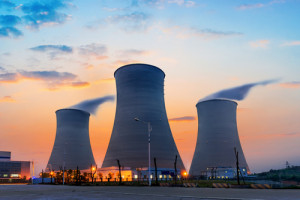Many Americans long have feared nuclear energy.
To be honest, I was one of them. I no longer fear it.
An essay in the New York Times makes a compelling argument that the time to bring nuclear energy back into the discussion of clean alternatives to coal has arrived. Why not now, while 150 or so world leaders are meeting in Paris to talk about climate change?
Technological improvements have greatly improved nuclear power’s safety record. Peter Thiel’s essay in the New York Times makes a most interesting point.
Remember the Fukushima nuclear disaster in Japan in 2011? Thousands of people died in the earthquake and tsunami that ravaged Japan and destroyed the Fukushima nuclear plant, Thiel writes. Not one person died of radiation poisoning, he adds.
Yes, there have been disasters, notably the Chernobyl event in Russia in 1986; Three Mile Island before that.
But in the intervening years, nuclear power has become many times safer.
I’m all in on efforts to harvest the wind — which is being done in places like the Texas Panhandle, where my wife, one of our sons and I live. I want there to be more exploration of natural gas, which also is in abundance throughout West Texas. With the abundant sunshine we have in this part of the world, it’s high time we invested far than we do in solar energy.
These all are viable alternative energy sources that must become part of the nation’s wide-ranging effort to wean ourselves of fossil fuel and coal.
We’re neglecting any serious discussion, though, of nuclear energy.
It’s interesting that a climate change conference is being held in a country, France, that relies heavily on nuclear power to keep the lights on.
Roughly 75 percent of France’s energy needs are met by nuclear power plants. It’s ironic, to my way of thinking, that nuclear energy isn’t being discussed as openly as it should, given the location of this climate change conference.
President Obama can seize the moment as he enters the final year of his presidency, according to Thiel.
As Thiel writes: “Both the right’s fear of government and the left’s fear of technology have jointly stunted our nuclear energy policy, but on this issue liberals hold the balance of power. Speaking about climate change in 2013, President Obama said that our grandchildren will ask whether we did ‘all that we could when we had the chance to deal with this problem.’
“So far, the answer would have to be no — unless he seizes this moment. Supporting nuclear power with more than words is the litmus test for seriousness about climate change. Like Nixon’s going to China, this is something only Mr. Obama can do. If this president clears the path for a new atomic age, American scientists are ready to build it.”
